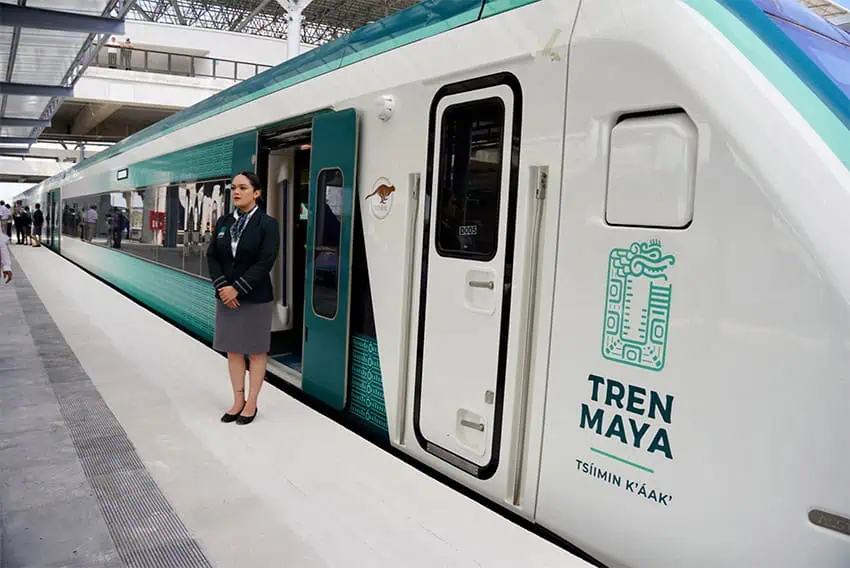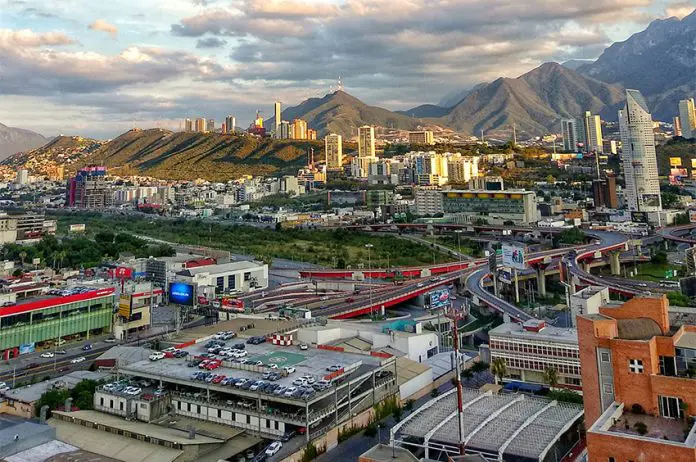Plans for regular passenger train service connecting Monterrey, Nuevo León, with several cities in Texas gained momentum this week, with officials from both sides of the border signing a letter of intent to develop the project.
The proposed high-speed rail line would link Austin, San Antonio and Laredo with Mexico’s second most-populous city.
Nuevo León Governor Samuel García Sepúlveda called the project “a great opportunity for economic, tourism and industrial development.”
The letter of intent — signed by García alongside Texas officials including Travis County Judge Andy Brown and Hays County Judge Ruben Becerra — formalizes cooperation on the rail line.
Becerra said the Texas region is the fastest growing in the U.S., making this the right time to promote such a project. He noted the benefits that it would bring in attracting investments and nearshoring.
García said he’s been pushing for a train from Monterrey to Laredo and Austin ever since he took office on Oct. 4, 2021.
Muy agradecido con las autoridades de Texas por sumar esfuerzos con Nuevo León para impulsar la construcción de este Tren Transnacional Nuevo León -Texas.
Para hacer cosas grandes, hay que soñar en grande, pero lo más importante es tomársela en serio y ponerse a jalar, y eso es… pic.twitter.com/zWTqPodTGM
— Samuel García (@samuel_garcias) September 25, 2024
Governor García and Texas authorities announced the agreement on Wednesday.
“I have been trying for three years now,” he said.
Earlier this year, the Texas Passenger Rail Advisory Committee, led by Brown and Bexar County Judge Peter Sakai, was formed to explore solutions for alleviating traffic congestion on an 80-mile stretch of Interstate 35 between Austin and San Antonio.
Expanding the rail network into Mexico would enhance international connectivity, Brown said, offering an alternative to the heavily congested I-35 corridor, which continues from San Antonio to the U.S.-Mexico border at Laredo.
The push for a cross-border train is part of a broader effort to revive passenger (and cargo) rail service in Mexico — from the Maya Train in the south, to the Interoceanic Train that goes from one coast to the other, to new President Claudia Sheinbaum’s proposed routes in the north, to the commuter train connecting Toluca and Mexico City.

On the Texas side, the rail line would extend the existing Oklahoma-Austin train route to Laredo.
The Texas Eagle, a daily Amtrak service that travels between Austin and San Antonio, currently represents the main passenger rail link between these two big cities. However, it does not extend into Mexico.
One of the most well-known trains connecting Mexico with the United States was the Aztec Eagle, which adopted that name in 1948 but ran between San Antonio, Texas and Mexico City from 1915. The route was known for its amazing desert and mountain scenery.
The last regular passenger train service connecting the U.S. and Mexico was the National Railways of Mexico, or Ferrocarriles Nacionales de México (FNM), which ceased operations in the 1990s.
In 1995, Mexico’s government announced that the FNM would be privatized and divided into four main systems, with FNM suspending all passenger rail service in 1997 as part of the restructuring.
García stressed that the Monterrey-Austin line would be the first of its kind in the region, akin to European trains that seamlessly cross borders.
“We want to build the first transnational train that crosses borders, and we believe Monterrey is the ideal place,” García said.
With support from state and federal governments in both countries, officials said they hope to secure financing for the project and begin construction within the next few years.
With reports from El Economista, El Financiero and Newsweek
